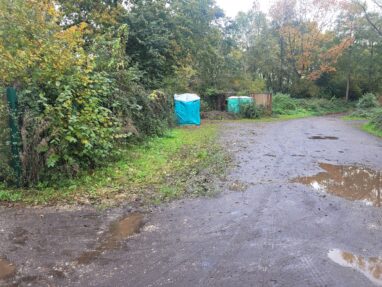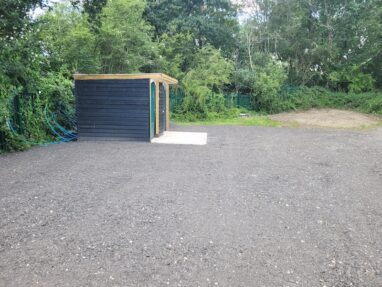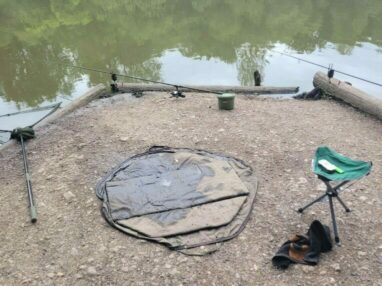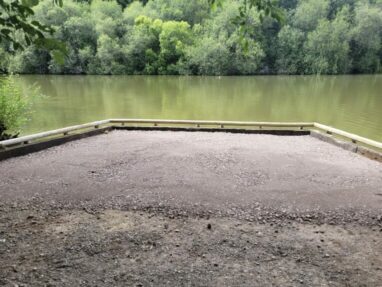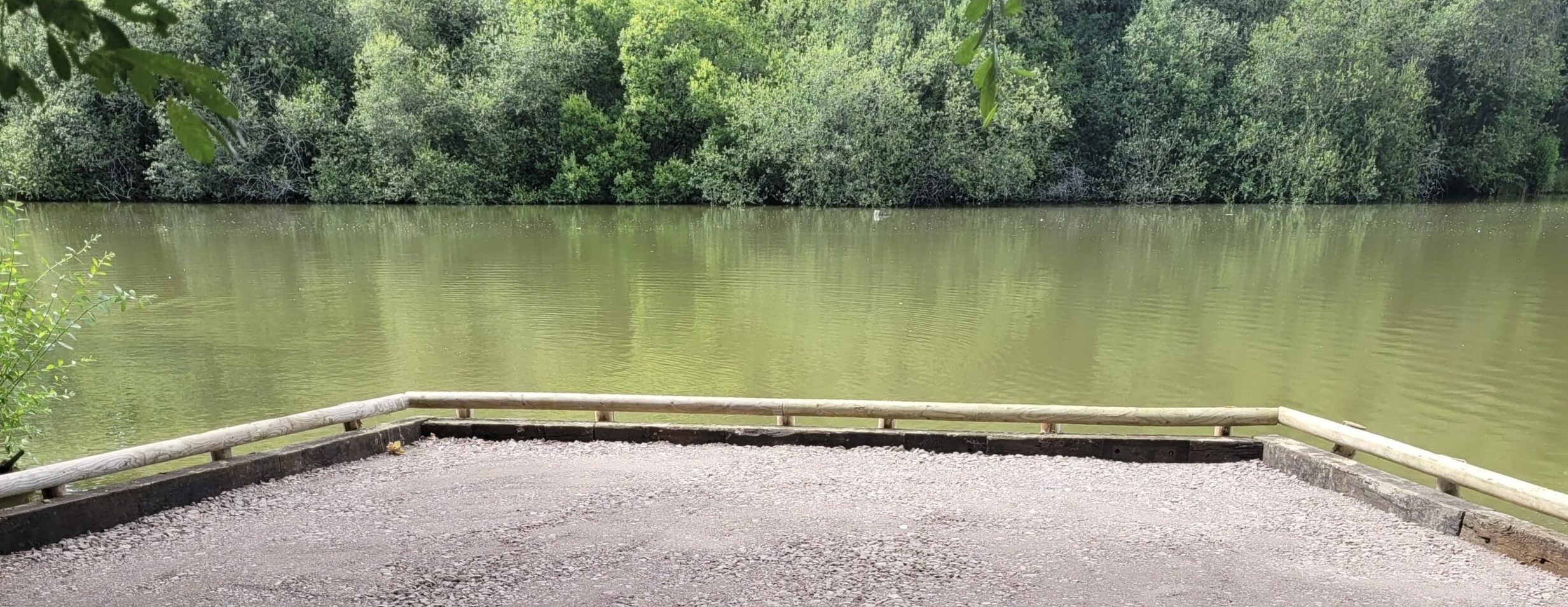
Lines On The Water
The Fisheries Improvement Programme – Supporting Club Development
Helping clubs and fisheries via the Fisheries Improvement Programme (FIP) is just one of the ways the Environment Agency manages the distribution of fishing licence income. When a funding round opens, clubs and fisheries can apply for financial support for forthcoming projects that meet certain criteria. Whenever a new round is announced, the general advice is always to plan early. Farnham Angling Society did precisely that.
In its last annual report, the EA confirmed that almost £21m was generated by fishing licence sales. This budget enables the Agency to undertake its fisheries duties and supports a wide range of partners and programmes that benefit and promote the sport of angling.
Some of that money is allocated to the FIP which is a fund that enables clubs and fisheries to undertake projects to improve fisheries habitats and the infrastructure of angling venues. This could include schemes that help mitigate climate impact, support equipment purchases to monitor water quality, or aid the creation of safe, accessible swims.
It can also help a venue with the installation of toilets.
The fund is administered by the Angling Trust on behalf of the Environment Agency and the priority of maximising the impact of a rod licence holders’ money and offer full value, means the process towards an applicant’s success is predictably robust.
In the case of Farnham Angling Society in Surrey, the FIP has supported two projects in two separate rounds that have benefitted 3,700 members, their guests and, after angler prioritisation, the general public too. A new toilet block and the replacement of dilapidated swims with solid, upgraded constructions at two of their 34 venues, has made a massive difference for a combination of those who fish and the locals who feed the ducks. Both projects are a case study in how the whole FIP process works.
Farnham’s Mill Lane Lake is an acknowledged and famed big fish water that has hosted several Tenchfisher Masterclass events. It’s a regular venue for both adult and junior day time anglers but is also regularly populated by those carting bivvies, beds and stoves for an extended stay over several days. With the lake surrounded by houses, the need for some personal privacy when nature calls, coupled with a high level of social responsibility meant the portaloos were no longer an adequate option.
Farnham’s answer was a wheelchair-friendly toilet block served by mains water and sewage services that would benefit all users regardless of age, gender or mobility. To put the task immediately into perspective, the installation of a water supply at a cost of around £12,000 was just the start. When all services were connected and basic structural work and final facilities were accounted for, it was clear the society were in for a hefty level of investment. While the club was picking up most of the cost, support from the FIP has enabled their money to go a little further than it otherwise would have done.
“The Environment Agency doesn’t want to give out rod licence payer’s money if it’s not correct so there are some thorough checks you have to go through,” said Farnham’s Fishery Management Secretary, Trevor Hopkins. “The FIP application makes projects achievable, but you’ve got to be dedicated and committed. We had endless amounts of meetings, trips to the council, dealings with companies for quotes and it’s a colossal amount of work. But it’s made a huge difference and has been completely worth it.
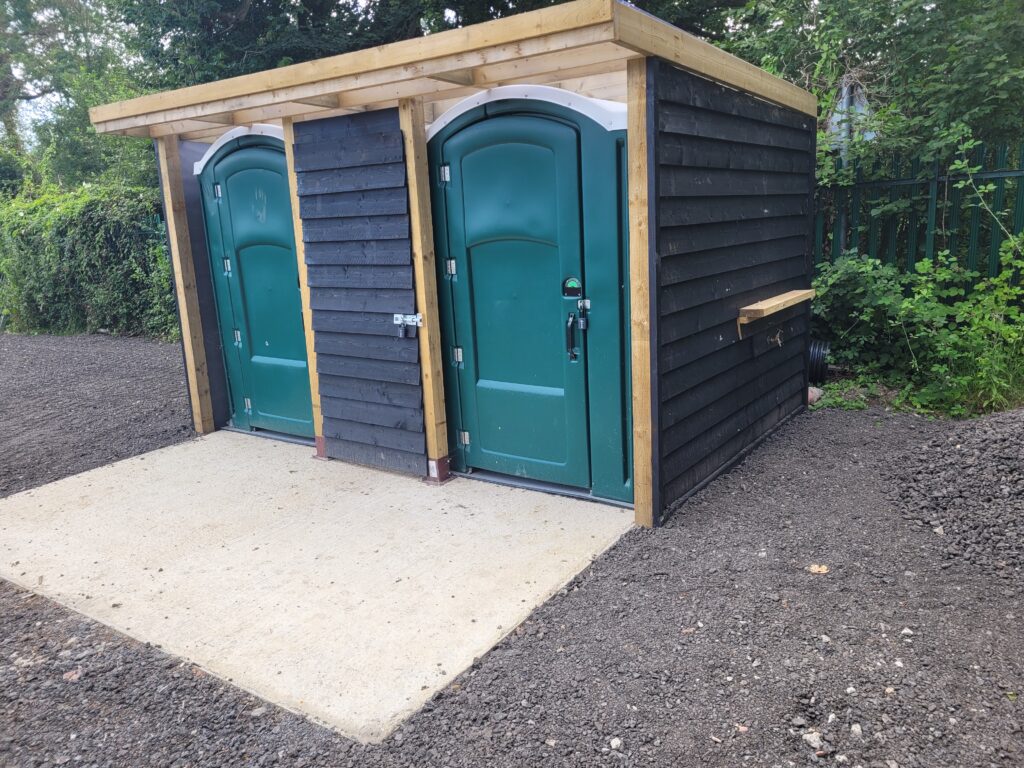
“As a society, every penny that comes into the club is spent on the venues and the members. It’s a not-for-profit organisation so the FIP’s contribution to the final cost means we can use the money we saved for other things like general upkeep, fish stocking and other important stuff for our members.”
In a round of the FIP the following year, Farnham were successful with an application for a second, unrelated project. Lodge Pond in the Alice Holt Forest is a publicly accessible venue that provides quality, entry-level fishing. It’s ideal for juniors and families because the catch rate is likely to keep even the most impatient on their toes! The general public also have access to the swims to feed the ducks but these 30-year-old swims had become dilapidated and unsafe. The club was informed that to retain the lease it needed to remove rotten timber and install new railway sleepers and chestnut posts, before backfilling the new construction with fresh scalpings. The added financial complication was that under professional advice, Farnham had already undertaken expensive tree work across its waters to retain overall safety for all users. While the club still managed to pay most of the cost for the swim repairs, the FIP effectively provided surety to complete the work.
For both projects, the club provided quotes from preferred contractors and suppliers together with evidence of their proven track records for the specified work. Additionally, they were able to call upon the experience of Life Member, Mike Barrass who has over 40 years’ experience in fishery management. All this valuable information was included within the club’s application for the FIP Panel to consider.
With a finite pot of money available at every round, the panel’s responsibility is to allocate funds for the best possible outcomes for angling and anglers and that meant Farnham’s previous success had no relevance for the second FIP approach. For this project, Farnham were back to ‘square one’ with a new application.
The final decision on which projects will be supported are made by a panel of Environment Agency and Angling Trust professionals who operate a point-scoring system across a range of project elements. The responsibility of distributing funds from those outcomes falls to the Environment Agency’s Fisheries Partnerships Senior Advisor, Roger Handford.
“Farnham’s history with the FIP is a perfect illustration of a hard-working club being recognised. The FIP has made a positive contribution to the overall future of angling through the efforts of local anglers that has also benefitted a whole community,” said Roger.
“Farnham’s approach for two very different projects was clearly and transparently presented. There’s no doubt it involves a good deal of work and organisation by any applicant, but to be successful in a competitive process in which many clubs across the country are fighting for FIP support, the work must be put in to make the case. We’d love to help every worthy project we’re approached with, but we simply can’t. So, we must make decisions.
“Our responsibility, with the valuable input from Angling Trust colleagues, is to direct fishing licence income into projects that will improve habitats and facilities for the primary benefit of angling and its anglers and leave a legacy for future generations. Sometimes the final decision between one or other is a tough one, and that’s why an applicant should be as comprehensive with their information as they can possibly be.”
—–
The Fisheries Improvement Programme is administered by the Angling Trust on behalf of the Environment Agency. To learn more about the application process click here.
You might also like

SENSAS FUTURE NETWORKS DO THE DOUBLE DOUBLE IN YOUTH…

NATIONAL GLORY FOR RAMMY AT LINDHOLME

Three British record fish claims ratified

Making plans for kids and holiday activities? Fun, safe…

Get Fishing Fund – Funded Project: Fishing Opens New…

Climate change fuelling dangerous river pollution across England and…
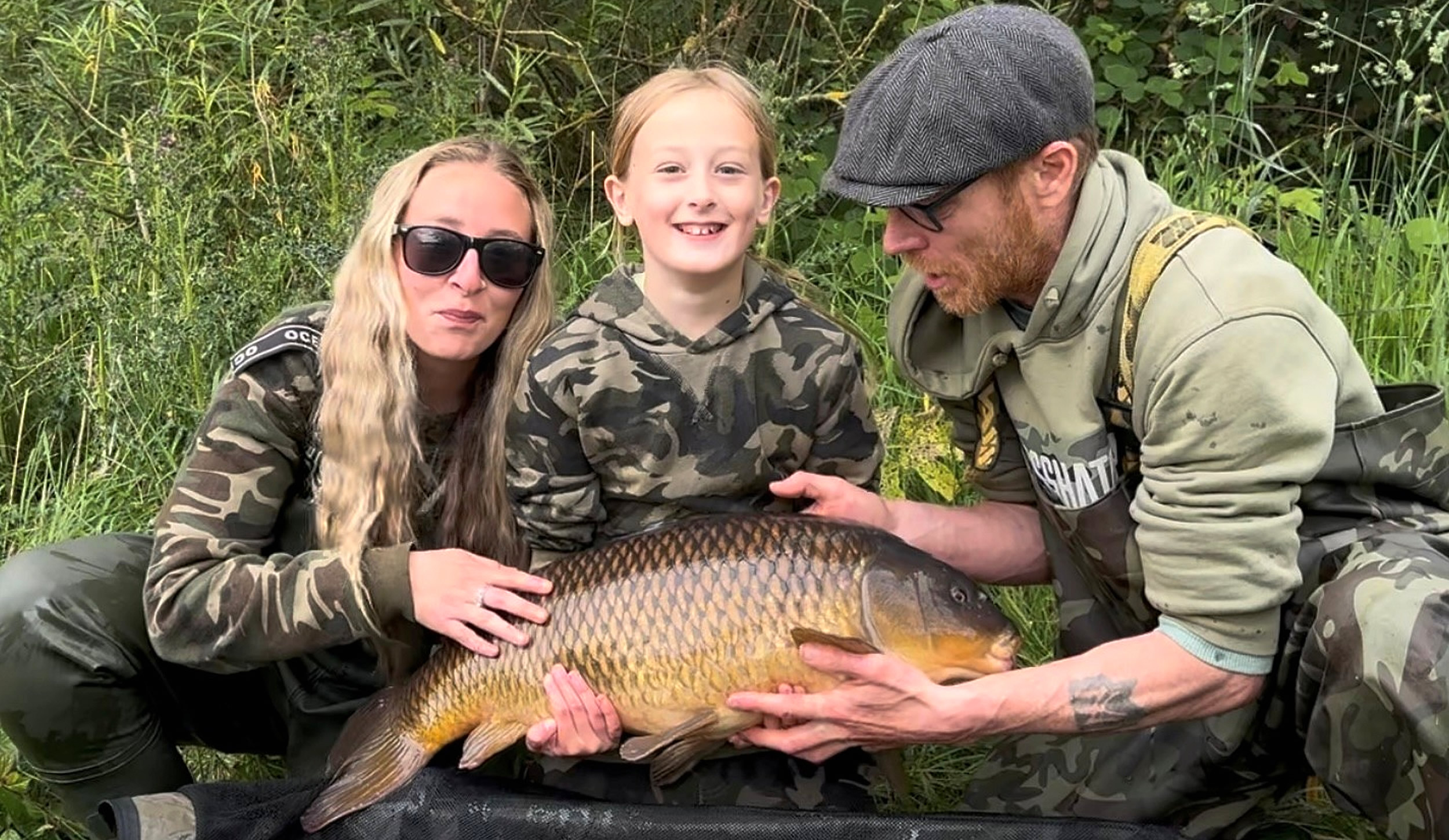
NEW BLOG: The best thing about fishing – from…

Ethan gets his Gold Get Fishing Award – young…

Summer of Fishing 2025 is here – get into…

Get Fishing Awards were at Bristol Festival of Nature…

VIDEO: It’s not all about the fishing… Check out…

ENGLAND TAKE GOLD IN HOME NATIONS BOAT CHAMPS

SENSAS FUTURE NETWORKS DO THE DOUBLE DOUBLE IN YOUTH…

NATIONAL GLORY FOR RAMMY AT LINDHOLME

Three British record fish claims ratified

Making plans for kids and holiday activities? Fun, safe…

Get Fishing Fund – Funded Project: Fishing Opens New…

Climate change fuelling dangerous river pollution across England and…

NEW BLOG: The best thing about fishing – from…

Ethan gets his Gold Get Fishing Award – young…

Summer of Fishing 2025 is here – get into…

Get Fishing Awards were at Bristol Festival of Nature…

VIDEO: It’s not all about the fishing… Check out…

ENGLAND TAKE GOLD IN HOME NATIONS BOAT CHAMPS

SENSAS FUTURE NETWORKS DO THE DOUBLE DOUBLE IN YOUTH…

NATIONAL GLORY FOR RAMMY AT LINDHOLME

Three British record fish claims ratified

Making plans for kids and holiday activities? Fun, safe…

Get Fishing Fund – Funded Project: Fishing Opens New…

Climate change fuelling dangerous river pollution across England and…

NEW BLOG: The best thing about fishing – from…

Ethan gets his Gold Get Fishing Award – young…

Summer of Fishing 2025 is here – get into…

Get Fishing Awards were at Bristol Festival of Nature…

VIDEO: It’s not all about the fishing… Check out…










